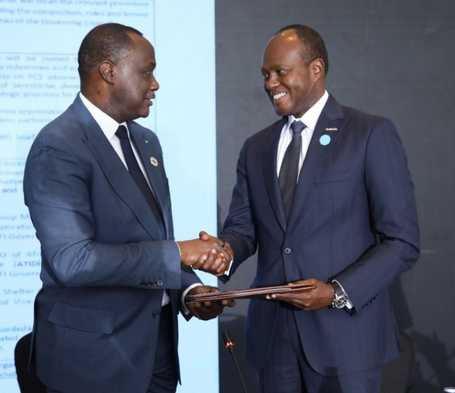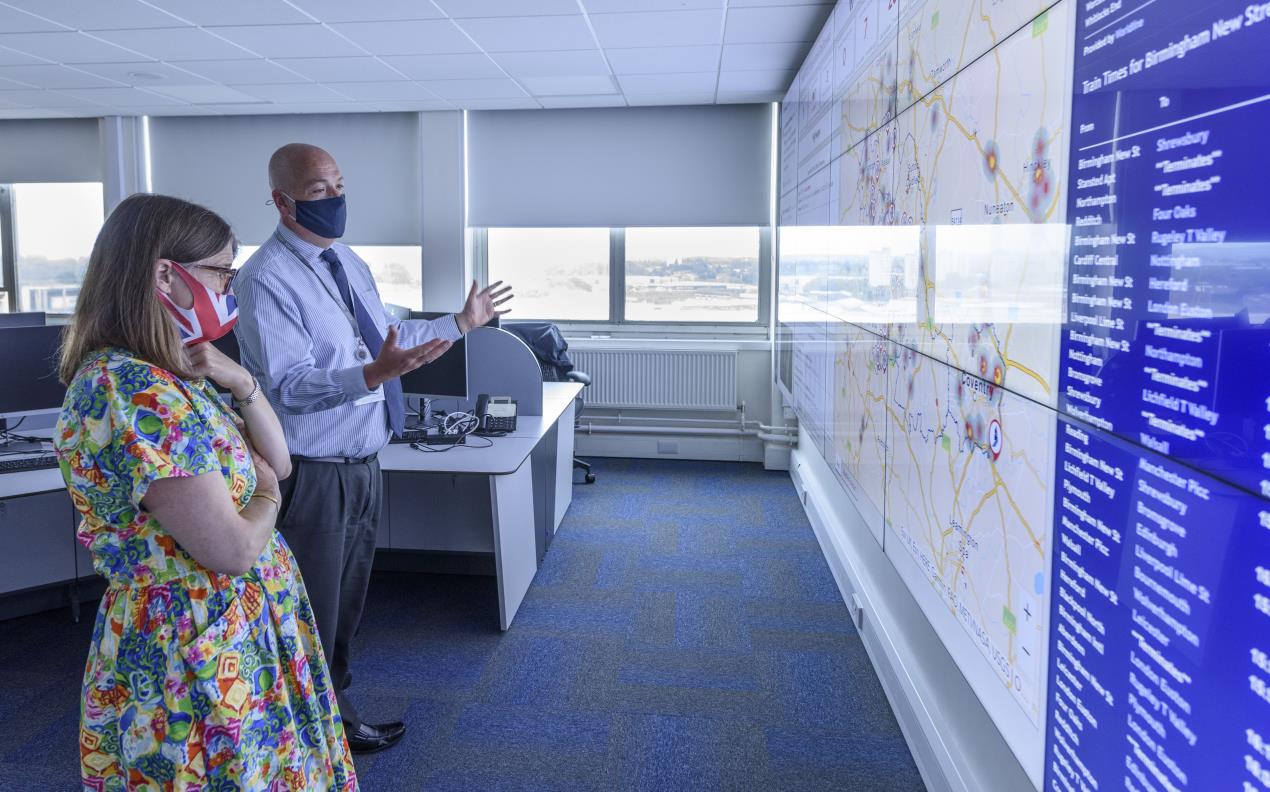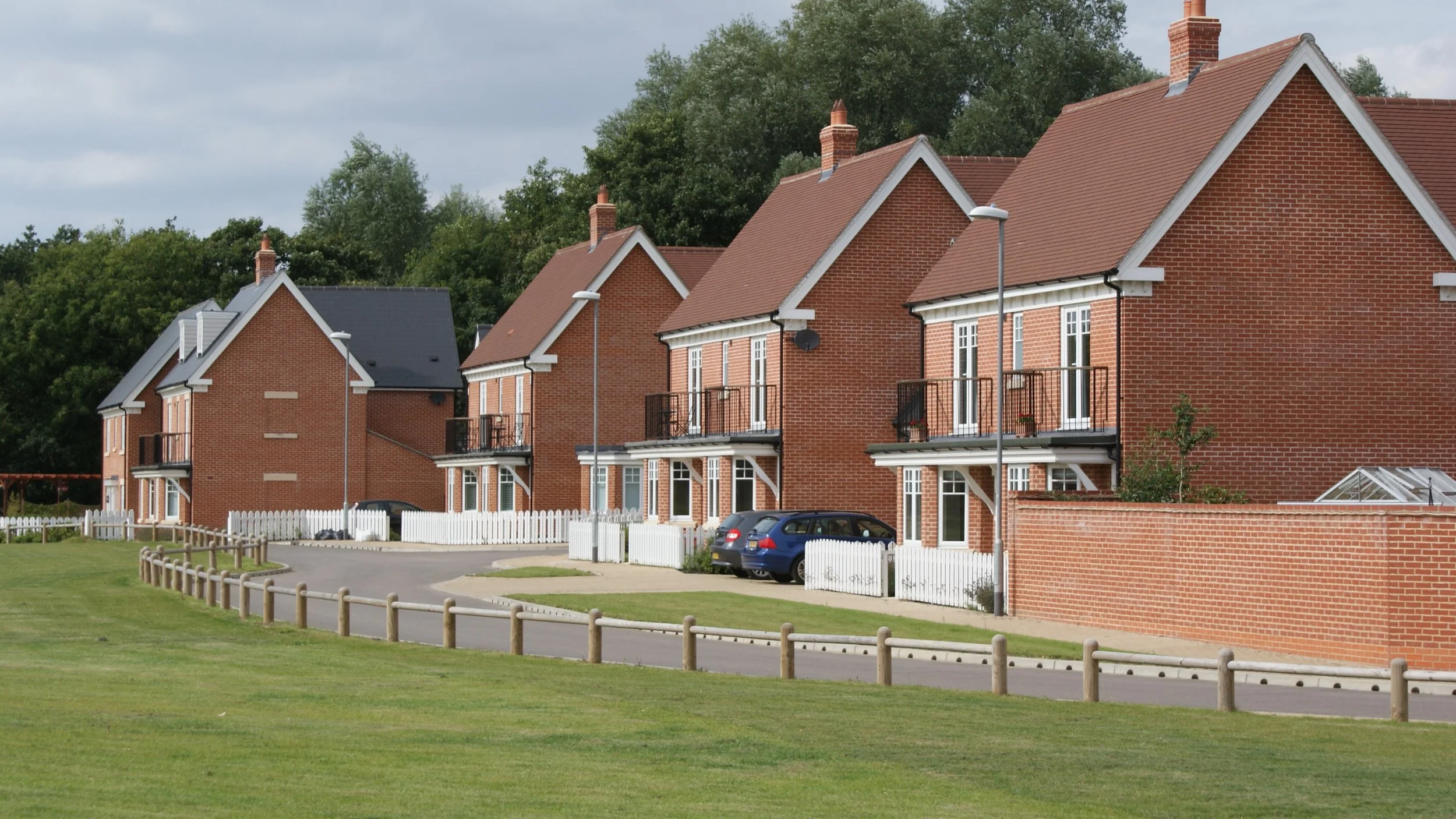Government transport minister Rachel Maclean MP has been shown how more than three million pieces of data a day gathered from the region’s roads network is helping to reduce traffic congestion and keep people moving.
This cutting-edge data gathering project, called Network Resilience Live Lab, is funded by the Department of Transport (DfT) through the two-year £22.9m ADEPT Smart Places Live Labs programme, until November 2021. Transport for West Midlands (TfWM) is using data that is harnessed round-the-clock from Static Automated Traffic Counters (SATCs) backed up by live feeds from more than 2,000 CCTV cameras covering the transport network to build up a detailed picture of traffic and transport movements around the region.
This data stream is being further enhanced with 5G roadside data sensors which relay live information on traffic movements. TfWM, which is part of the West Midlands Combined Authority (WMCA), is working with partner councils and transport operators to relieve pressure on the region’s roads. Approximately 50% of the road traffic in the region is carried on 7% of the road network leading to congestion.
Data is compiled by the Regional Transport Coordination Centre (RTCC), run by TfWM in collaboration with local authorities and transport operators, to better direct and manage the transport network around major incidents and large scale events. This data is used to offer instant traffic advice and warnings to the travelling public, such as through the @WMRoads twitter feed, to avoid an incident or find an alternative route. Transport planners are also using the information to act, such as putting diversions in place, to deal with congestion.
Rachel Maclean, who is Redditch MP as well as Department for Transport Minister toured the £22 million Regional Transport Coordination Centre (RTCC), the information gathering nerve centre in Birmingham, where the data is received, along with live information from public transport operators, and analysed.
Transport Minster Rachel Maclean said: “The UK is paving the way when it comes to the future of transport and the development of cutting-edge technology and I’m delighted to see this being embedded in the West Midlands area through the Adept Live Labs project.
“Reducing traffic will cut transport emissions and improve air quality, making our communities healthier, better places to live. That’s why supporting innovation is a priority for this Government, as we look to solve the complex challenge of decarbonising transport and achieving net zero by 2050.”
Mayor of the West Midlands Andy Street said: “We took this opportunity to show the Minister the ground-breaking work being done with big data to deal with traffic congestion on our roads.
"It is a major issue for many thousands of people a day as they travel about our region which is why we are investing more than £1 billion in improving our bus, train, tram and cycling infrastructure around the region as well as relieving some of our notorious congestion hotspots such as Birchley Island in Oldbury. Alongside this we have introduced the RTCC which uses the vast amounts of data gathered to produce better travel information, and even spot problems before they develop, so people spend less time sat in their cars – saving them time and benefitting our environment in the process.”
Live Labs programme director Giles Perkins said: “The ADEPT Live Labs programme represents the cutting edge of innovation in the local roads sector.
“We are pleased that the Minister and Mayor have been able to see first-hand the great things that our West Midlands colleagues have achieved with their approach to the application of large-scale data processing to help solve challenging congestion issues. Over the coming months we’ll be sharing insights and learnings from the programme widely so that the whole of industry can benefit from DfT’s £23m investment.”
As well as the large-scale data gathering operation in the Live Lab, work is also being carried out, under TfWM’s Future Transport Zone umbrella, to study and research individual travel patterns and behaviour to find ways of better targeting messages to encourage people to change their travel choices – such as choose a better time of day or switch to public transport.
The Minister also spent time with the Future Transport Zone and West Midlands 5G to find out more about their work on innovative projects including the autonomous vehicle testbed. Reducing the traffic congestion on the roads can help cut carbon emissions and improve air quality as part of our #wm2041 plans for a net zero carbon region.
Councillor Ian Ward, Leader of Birmingham City Council, said: "We're harnessing cutting edge technology in the Live Lab to boost our efforts to reduce congestion and change the way people travel across the region.
"Information gathered from the traffic counters is helping us to better manage our network and design new ways of getting about to reduce gridlock and encourage more walking, cycling and greater use of public transport." ADEPT represents local authority, county, unitary and metropolitan directors.
The ADEPT SMART Places Live Labs programme is a two-year £22.9 million project funded by the Department for Transport and supported by project partners SNC-Lavalin’s Atkins business, EY, Kier, O2, Ringway and WSP. Nine local authorities are working on projects to introduce digital innovation across SMART mobility, transport, highways, maintenance, data, energy and communications.
Live Labs is part of ADEPT’s SMART Places programme to support the use of digital technology in place-based services.

















